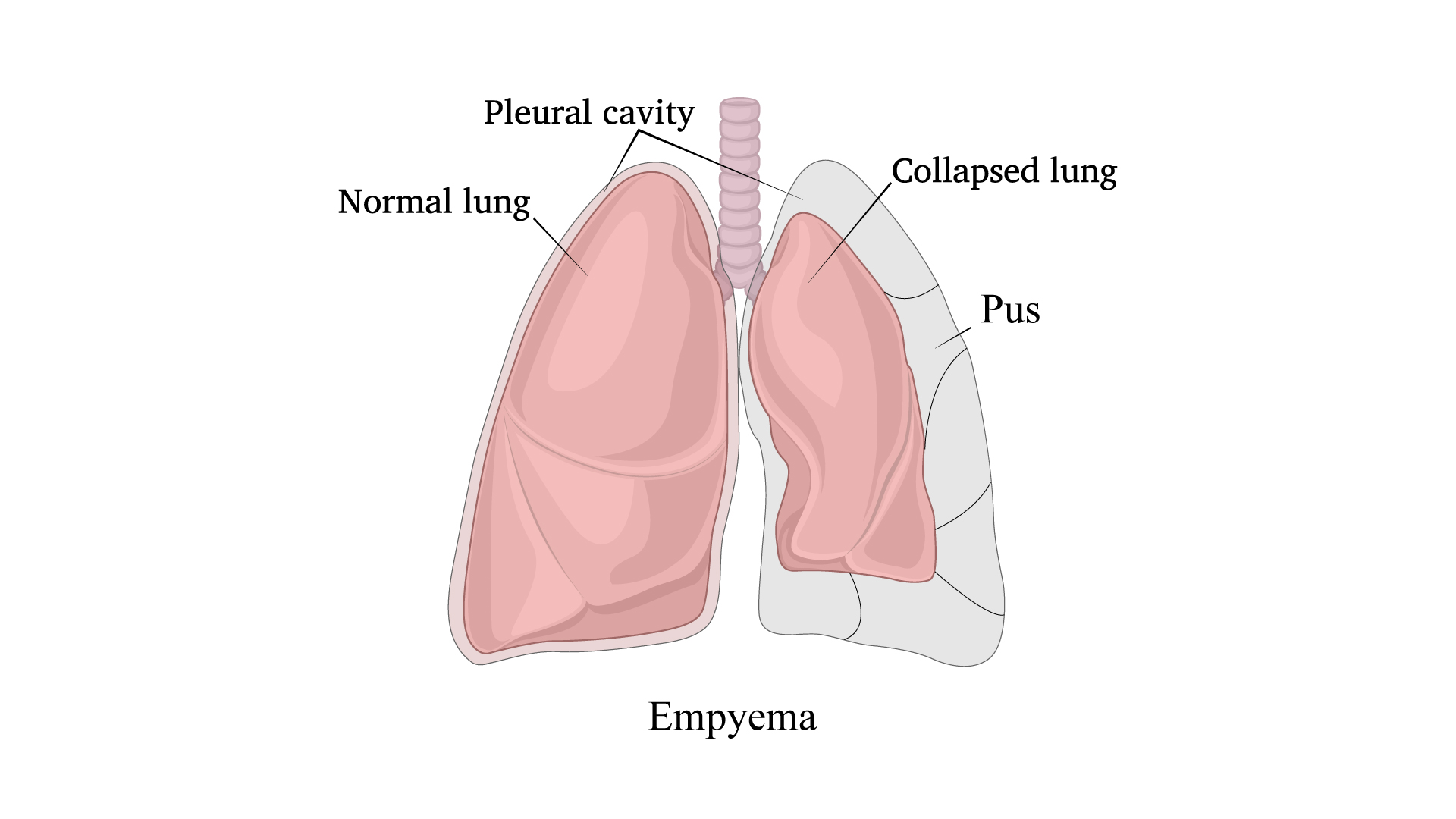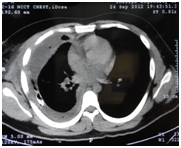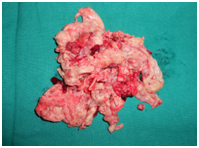

MBBS (AIIMS), MS (Surgery, AIIMS), MNAMS, FACS (USA), FICS (USA), FUICC
Sat, 03 Feb 2024

Oftentimes people are diagnosed with life-threatening conditions like Empyema that require immediate medical attention and may need help to understand how to manage it better. Empyema, a potentially life-threatening condition, is a collection of pus in the pleural space, the area between the lungs and the chest wall.
In most cases, patients develop Empyema as a complication of pneumonia or other types of infections in the chest cavity, chest trauma, or surgical complications. Owing to the severity of the condition, prompt and appropriate treatment is mandatory to ensure that the patient recovers and survives. Consult Dr Arvind Kumar and get expert advice and treatment.
This guide will explore everything you need to know about Empyema, its potential causes, list of symptoms, diagnosis, and treatment options.
There are a variety of factors or triggers that can lead to the onset of Empyema, including:
Depending on the severity of the conditions, empyema can manifest as different signs and symptoms, including:
Paying attention to these early signs and symptoms and seeking prompt medical help is vital for the patient’s well-being and quicker healing and recovery.
Symptoms of Empyema may vary from asymptomatic disease picked up on a CT Scan to cough, fever, chest pain, and breathlessness. It affects patients of all ages-from youngest to oldest. Early surgical removal of pus leads to quick recovery whereas delay in treatment can even be fatal.

Since empyema is often a life-threatening condition, early diagnosis is crucial for the administration of effective treatment. Some of the most common modes of diagnosis include:

This involves an initial consultation with the specialist, who will then conduct a physical examination to look for signs of chest pain, decreased breath sounds, and other suggestive symptoms.
To better understand the condition and its severity, a chest X-ray is done, which can show the presence of fluid in the lungs and possible signs of lung collapse or abnormalities in the chest cavity.
If the standard X-ray doesn’t give a comprehensive understanding, the doctor will switch to a CT scan for a more detailed view of the chest, helping to determine the extent and location of the infection.
Once it is confirmed that the patient is suffering from empyema, the thoracentesis procedure is done to extract a sample of the fluid trapped inside the pleural space to look for signs of bacteria and determine the kind of infectious agent.
To get an overview of the patient’s overall health, blood tests like complete blood count (CBC), etc., are also prescribed by the specialist.
The diagnosis is confirmed by CT Scan and aspiration of pus from the chest cavity.
Treatment can go in two routes:
Non-surgical interventions are often the first line of treatment for empyema, especially in less severe cases.
They include:
These approaches aim to control the infection, relieve symptoms, and promote the bodys natural healing processes.
In some cases, surgical intervention becomes necessary when non-surgical treatments are ineffective or the condition is particularly severe.
They include:
If the patient’s condition is severe, getting immediate and prompt medical treatment is necessary before things turn for the worse and lead to a life-and-death situation.
Empyema means the presence of pus in the pleural space between the outer surface of the lung and the chest wall.
Empyema can occur as a complication of tuberculosis, pneumonia, trauma, repeated aspiration of pleural fluids and also following various chest operations.
However, in advanced cases which have been on medicines for several months with a thick hard layer around the lung, open surgery is mandatory to be able to remove the disease completely as incomplete removal of the pus and the peel, often leads to recurrence of the disease process later.
If the patient doesn’t receive timely treatment and the empyema symptoms are not managed on time, it can lead to a variety of consequences, including:
The long-term outlook for patients with empyema depends on the severity of the condition, the promptness of treatment, and any underlying health issues. With appropriate care, most patients can achieve full recovery. This is precisely what Dr. Arvind Kumar, a leading thoracic surgeon in India, aims for with his patients.
If you are experiencing signs and symptoms of empyema and have been brushing it to the side, it is time to change that attitude. Empyema is a severe condition that requires swift diagnosis and treatment. Regardless of the treatment approach, Dr Arvind Kumar and his team ensure the best outcome for patients with empyema.
Copyright @ (Prof.) Dr. Arvind Kumar. All Rights Reserved / Thoracic Surgical Oncologis
License Number: U.P State Medical Council (India) No. 27637
